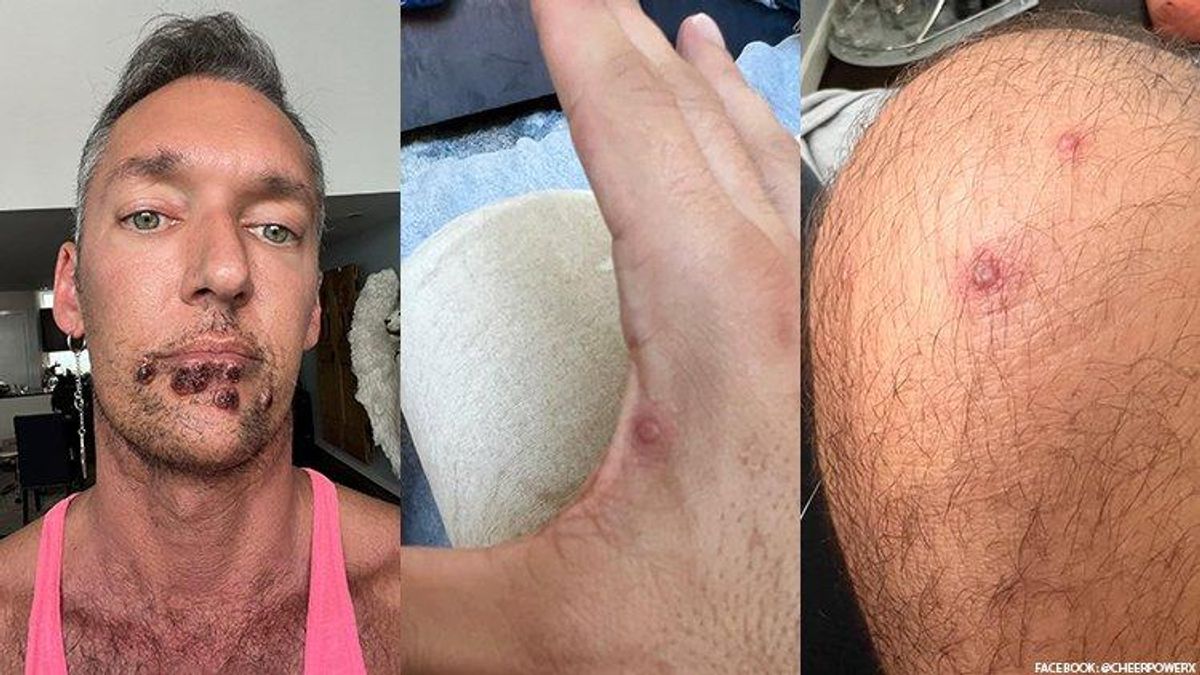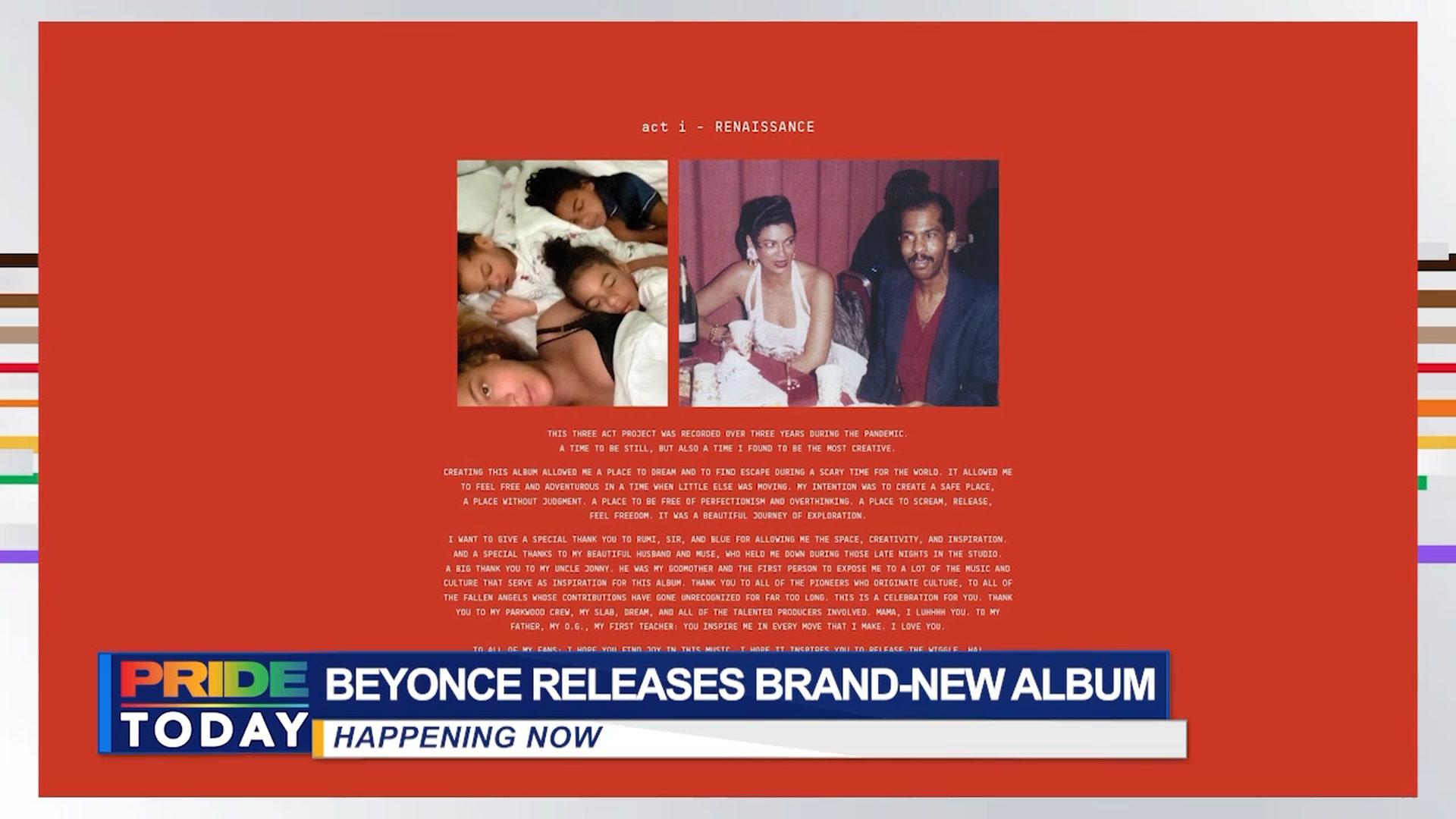Stigma
The Reality of MPV: Monkeypox Patients Speak of Loneliness and Pain

Wesley Wallace says he got MPV by kissing someone at a bar. Now he wants people to see what the virus can look like and understand its stigma.
August 04 2022 3:02 AM EST
By continuing to use our site, you agree to our Privacy Policy and Terms of Use.

Wesley Wallace says he got MPV by kissing someone at a bar. Now he wants people to see what the virus can look like and understand its stigma.
A Texas man who recently contracted monkeypox, now commonly being called MPV, received a lot of mixed attention after sharing images of the progression of the infection, which has manifested itself in part on his face. By sharing his MPV experience in public, the gay Houstonian says he hopes to raise awareness about its prevalence while also removing the stigma and bringing attention to its isolation.
Following the 4th of July holiday, Wesley Wallace traveled to Austin for Hippie Hollow Otter Fest, a weekend event attended by queer men on Lake Travis, to have a leisurely time on the water.
“It’s a lake, boat, shoreline kind of thing,” says the 42-year-old tech professional.
When he returned from the weekend of drinking, socializing, and soaking up some rays, he noticed some irritation on his face, which he attributed to shaving and wearing sunscreen while baking in the sun. When another blister-like dot appeared on his chin on Tuesday, he assumed it was a pimple, but he could not pop it.
After the sores started to grow the next day, he thought, Monkeypox, monkeypox. Then, when he woke up Friday, he knew something was wrong because his body aches and swollen lymph nodes made him feel unwell.
“And so I thought, God, I already know,” he says, “I know what this is.” Wallace says he was aware that Quest Diagnostics had just come online to test for MPV, so he called his doctor and asked for a test.
Ultimately, his doctor did not require a test result to recognize that he had MPV.
Unlike many who have contracted MPV, he does not believe it was acquired through sex.
“I have a promiscuous nature, and I have casual sex,” he says, “but the particular weekend that I would have gotten it, I was not being that wild.”
According to him, on the 4th of July weekend, he had taken his shirt off in crowded gay bars, where countless sweaty people rubbed up against him. He says he believes he caught MPV by kissing someone.
“I probably made out with several people at the bar,” he says, “and a lot of hugging went on.”
As TPOXX wasn’t available to him then, Wallace’s doctor prescribed Vicodin and gabapentin, an anticonvulsant nerve pain medication.
On June 30, another man, Kyle Planck began to feel ill after attending Pride festivities in New York City. The 26-year-old says he’s been concerned about MPV for longer than the average person and tried to get vaccinated early on but couldn’t. Planck says he intially thought he had contracted COVID when the infection began.
For several days he experienced body aches and fatigue. “But that [coronavirus] test kept coming back negative,” he says.
Then it happened — he discovered bumps on his arms, hands, and elsewhere. In his genital area, the most painful lesions, he says, kept him up at night, unable to get comfortable because of their excruciating pain. Other lesions mostly became irritable when touched, he says.
Other MPV patients we spoke with also reported that the lesions in the area they believe they touched another person's infection were constantly painful, while the bumps that appeared elsewhere on their bodies were less painful.
Planck is a Ph.D. student studying infectious diseases, so due to his expertise in the medical community and his ability to advocate for himself, he received TPOXX the day after his July 5 visit to an academic medical center in New York.
Because that medication has been thoroughly tested and is so heavily regulated, he believes the government should make it available and allow people to enroll in clinical trials. Moreover, although he's fully recovered, he says it's untenable that two hours of paperwork are required to get the antiviral even after the Centers for Disease Control and Prevention lowered the requirements.
Despite understanding the nuance of the government’s response, he says much of what's happened in the U.S. in relation to the MPV outbreak could have been avoided in May had the government acquired vaccines when the outbreak spread in Europe.
“Waiting and seeing does not take into account how infectious diseases work, and very differently from COVID, we had the tools. We have a vaccine that’s 85 percent effective and an antiviral that has been shown to be safe in humans and efficacious in animal models of orthopox virus infections,” Planck says.
Aside from its physical effects, MPV also takes an emotional toll on people, both Planck and Wallace say.
“There are people I know who have turned their backs on me, and I’ve gotten messages of hate and vitriol, trying to shame me and stigmatize me,” Wallace says. “But that’s not going to work.”
Wallace says through tears that it has been hard to live with the equivalent of a societal scarlet letter on his face. But he says he draws strength from knowing that his story will help other people in the LGBTQ+ community (who have been the most vulnerable to the virus so far).
“So what I knew to do was to help others,” he says. So, after speaking with some friends, he says he decided to come forward and share his experience to take the shame out of MPV.
“This is me; I got a virus,” he says. “That’s it.”
Last Wednesday, the World Health Organization warned that men who have sex with men should reduce the number of sexual partners they have. The WHO’s advice goes beyond what has been suggested by the CDC, which has only recommended individuals avoid skin contact with someone who may have MPV.
Follow More Advocate News on Pride Today Below
